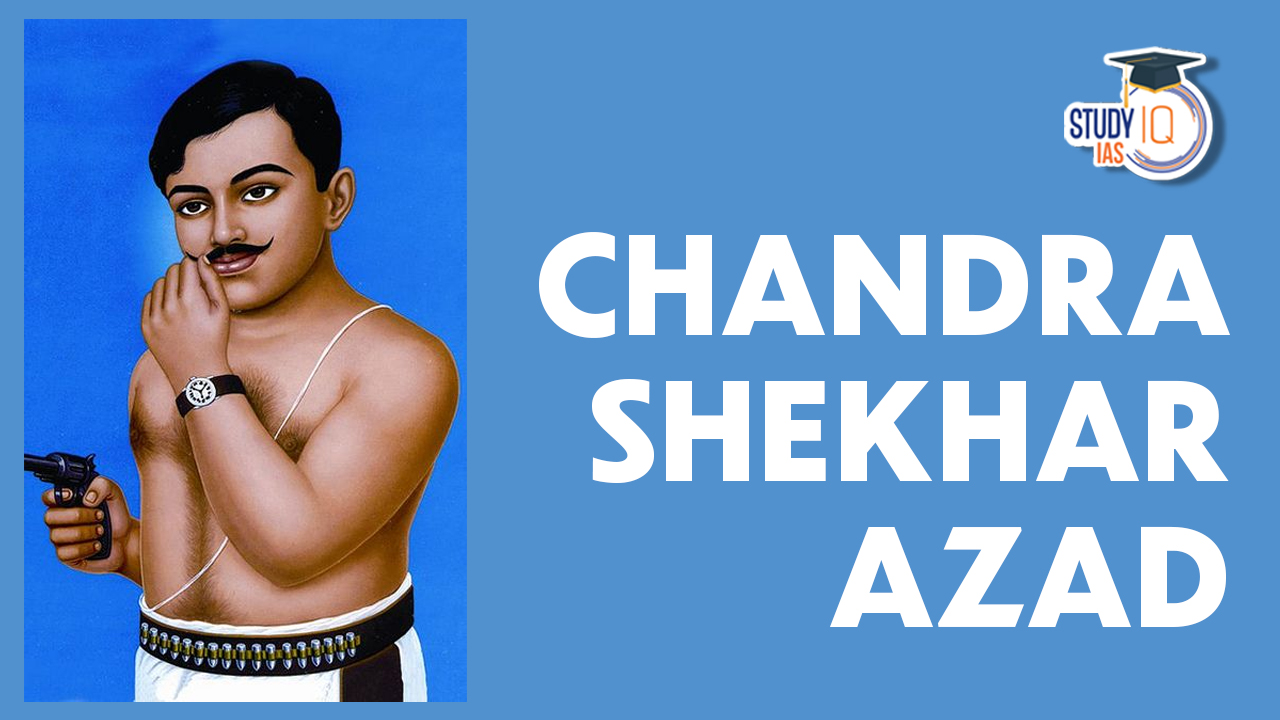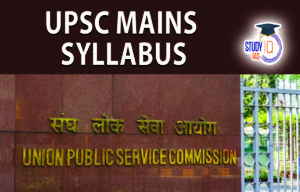Table of Contents
Chandra Shekhar Azad
An Indian Revolutionary leader and Freedom fighter, Chandra Shekhar Tiwari was better known by his stage name Chandrashekhar Azad. He reorganized the Hindustan Republican Association (HRA) under the new name of Hindustan Socialist Republican Association (HSRA) following the passing of the organization’s founder, Ram Prasad Bismil, as well as three other important party figures, Roshan Singh, Rajendra Nath Lahiri, and Ashfaqulla Khan. He frequently used the alias “Balraj” when signing pamphlets as the leader of the HSRA.
Read about: Bal Gangadhar Tilak
Chandra Shekhar Azad History
- Chandra Shekhar Azad, born Chandra Shekhar Tiwari in 1906, was a prominent figure in freedom fighters of India for independence.
- Azad has Drawn to the movement at a young age, he participated in Gandhi’s non-cooperation movement and even received his first taste of resistance at the hands of British authorities.
- Disillusioned by the movement’s suspension, he joined the revolutionary Hindustan Republican Association (HRA).
- He became a key figure, involved in actions like the Kakori train robbery and the assassination of a British official.
- Chandra Shekhar Azad died on 27February 1931 at Alfred Park by shot himself in the head
Chandra Shekhar Azad Death
Azad attempted to have Bhagat Singh released from prison after his incarceration following the bombing of the Central Assembly. Chandra Shekhar Azad was surrounded by police on February 27, 1931, when he went to Alfred Park to meet one of his connections. He heroically resisted the police battalion for hours in defiance of orders to submit but ultimately shot himself in the head.
Read about: Mahatma Gandhi
Chandra Shekhar Azad Biography
Check the table provided below for knowing the basic information on Chandra Shekhar Azad:
| Chandra Shekhar Azad Biography | |
| Particulars | Details |
| Birth | July 23, 1906 |
| Birth Place | Bhavra village of Madhya Pradesh |
| Parents | His father Sitaram Tiwari was a gardener, while his mother Jagrani Devi was a homemaker. |
| Original Name | Chandra Shekhar Tiwari After joining the movement, he was arrested by the British police and when he was presented before a magistrate, he declared his name to be ‘Azad’, his father’s name as ‘Swatantra’, and his residence as ‘prison’. |
| Revolutionary Organisation he was associated with | Hindustan Republican Association (HRA) |
| Revolutionary Activities he was involved |
|
| Death | He died at Azad Park in Allahabad on 27th February 1931. |
Read about: Subhash Chandra Bose
Chandra Shekhar Azad Contribution in Freedom Struggle
Chandra Shekhar Azad was a great Indian freedom fighter. Others of his generation were motivated to join the independence war by his intense patriotism and heroism. He served as Bhagat Singh’s mentor and is regarded, together with Bhagat Singh, as one of the greatest revolutionaries India has ever produced. Check the contribution Chandra Shekhar Azad in freedom movement below.
Non-Cooperation Movement
In December 1921, Chandra Shekhar, as a student, joined the non-cooperation movement. He was 15 years old at the time. He was therefore taken into custody. He identified himself as “Azad” (The Free), his father as “Swatantrata” (Independence), and his place of residence as “Jail” when he was brought before a magistrate. As a result, he earned the name Chandra Shekhar Azad.
Hindustan Republican Association
After Gandhi suspended the non-cooperation action in 1922, Azad joined in the HRA. As a branch of the Anushilan Samiti, Sachindra Nath Sanyal, Narendra Mohan Sen, and Pratul Ganguly founded the HRA, an Indian revolutionary group, in 1924 in East Bengal.
- Members: Bhagat Singh, Chandra Shekhar Azad, Sukhdev, Ram Prasad Bismil, Roshan Singh, Ashfaqulla Khan, Rajendra Lahiri.
Kakori Conspiracy
The majority of the money raised for revolutionary activities was obtained through thefts from government buildings. Accordingly, HRA committed the Kakori Train Robbery near Kakori, Lucknow, in 1925. Chandra Shekhar Azad, Ram Prasad Bismil, Ashfaqulla Khan, Rajendra Lahiri, and Manmathnath Gupta carried out the strategy.
Hindustan Socialist Republican Association
Later, the Hindustan Socialist Republican Army (HSRA) was formed from the remnants of the HRA. Chandra Shekhar Azad, Ashfaqulla Khan, Bhagat Singh, Sukhdev Thapar, and Jogesh Chandra Chatterjee founded it in 1928 in Feroz Shah Kotla in New Delhi. To exact revenge for the murder of Lala Lajpat Rai, the HSRA planned the assassination of J. P. Saunders, a British policeman, in Lahore in 1928.
HSRA and Assassination of Saunders
On September 1928, Azad along with Bhagat Singh and Sukhdev formed the Hindustan Socialist Republican Association (HSRA). To avenge Lala Lajpat Rai’s killing, the HSRA’s first mission was to kill JP Saunders in Lahore in 1928. To protest the Public Safety Bill and the Trade Disputes Bill, the second task was to bomb the Central Assembly.
Read about: Mangal Pandey
Legacy of Chandra Shekhar Azad
Azad met with Jawaharlal Nehru a few weeks prior to his passing to discuss the potential of not being viewed as an outlaw as a result of the Gandhi-Irwin deal, according to his memoirs. Azad, like many of his colleagues, noticed the “futility” of his techniques, according to Nehru, who also noted that Azad was not quite confident that “peaceful methods” would be effective. Alfred Park in Allahabad is currently known as Chandrashekhar Azad Park. The Allahabad Museum has a display of his Colt pistol.


 NCERT Books for UPSC Preparation, Check ...
NCERT Books for UPSC Preparation, Check ...
 UPSC Syllabus 2025, Check UPSC CSE Sylla...
UPSC Syllabus 2025, Check UPSC CSE Sylla...
 UPSC Mains Syllabus 2025, Optional Sylla...
UPSC Mains Syllabus 2025, Optional Sylla...





















